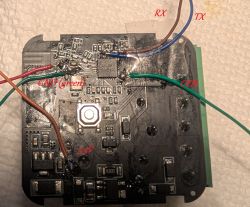Hi.
I'm dabbling in ESP32 and starting to adopt FreeRTOS. My goal is to connect the edp_http_client examples to the UART. I am attaching the whole project below.
For now, I've created a simple program based on uart_echo to see how to call several different processes (cutting out everything that involves uart). In other words, I used the uart_echo example template to test FreeRTOS.
Unfortunately I had already fallen down on implementing the first process:
.
The above program resets itself after a single correct execution as can be seen in this log:
.
In the third from the end line you can see that my_task executed correctly once, but then there was a reboot due to:
.
What am I doing wrong?
I'm dabbling in ESP32 and starting to adopt FreeRTOS. My goal is to connect the edp_http_client examples to the UART. I am attaching the whole project below.
For now, I've created a simple program based on uart_echo to see how to call several different processes (cutting out everything that involves uart). In other words, I used the uart_echo example template to test FreeRTOS.
Unfortunately I had already fallen down on implementing the first process:
Code: C / C++
The above program resets itself after a single correct execution as can be seen in this log:
Code: HTML, XML
In the third from the end line you can see that my_task executed correctly once, but then there was a reboot due to:
Code: HTML, XML
What am I doing wrong?






